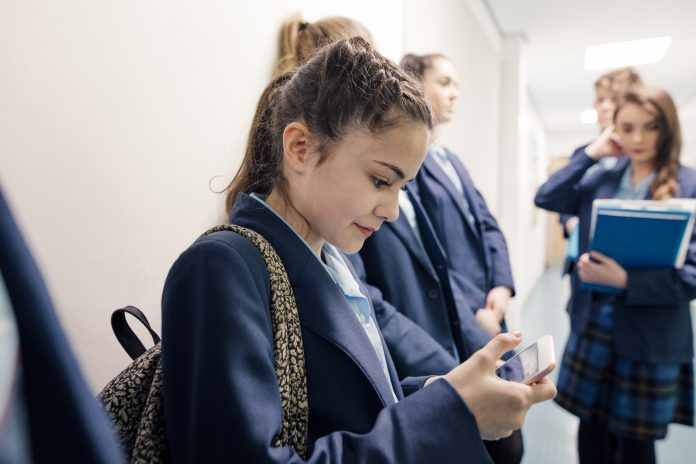Social media entrepreneur Ryan Williams advocates for teaching social media in schools to inform young people of both the risks and opportunities presented by online platforms
As the co-founder of KOMI Group, a company that was built from viral social media accounts, I’m a firm believer in the opportunities that online platforms present, particularly for young people. Equally, as a dad, I’m acutely aware of the risks that social media can pose to kids too. Here, I urge the Government to reform the national curriculum to ensure the next generation is fully equipped to take advantage of social media in schools and what it can offer students.
We need to find a way to balance these opportunities and risks – and to me, the answer is obvious. Education is key and social media in schools must be the new feature added to our national curriculum.
The American Psychological Association (APA) are right to have recommended for the first time that teenagers are trained to use social media safely. As parents, we have a responsibility to monitor its use, but schools also have a duty to support and inform young people on how to best navigate the brave new world of social media.
94% of all 16 and 17 year olds are active on some form of social media
Given that 94% of all 16 and 17 year olds and 91% of all 12 to 15 year olds are active on some form of social media, it’s a no brainer.
Given the central role that social media now plays in young people lives, the current ‘sticking plaster’ approach that is being used by schools is not fit for purpose. We urgently need reform.
What are the opportunities presented by social media?
I’m a firm believer in the huge opportunities presented by social media for our young people. It can open up doors, introduce them to ideas that inspire them, and even provide a platform for setting up a small business.
In fact, my journey is proof that social media, when used effectively, can level the playing field and break down barriers presented to young entrepreneurs. When I first got into the world of social media, Twitter was blowing up, and I started making funny football accounts, like my ‘Deluded Brendan’ parody account. I started the account for fun, mimicking the then Liverpool manager Brendan Rogers.
The account went completely viral, and quickly became a profitable business venture. I ended up co-founding KOMI Group with two other business associates who were running similar accounts. What developed was a multimillion-pound social media agency which completely changed my career path.
The breadth of opportunities social media offers to young people is endless. There are so many great career paths. Most organisations now have teams of people running their social media accounts, and the impact of creating viral content can be huge for an organisation’s visibility.

Social media is incorporated in numerous jobs
There are also endless roles that use social media, including analytics managers, copywriters, SEO experts and marketing influencers. And not to mention the jobs working for social media companies themselves! Meta alone has over 77,000 employees globally.
We should be drumming it into children that they too can monetise their own hobbies and interests using social media. There are countless opportunities to earn commission on sponsored posts or to get paid for reviewing affiliate products on TikTok.
Or, young people can make money by sharing their knowledge of a skill or subject they’re passionate about on YouTube. These are all flexible work options that can be pursued around their education, which also serve to teach them valuable skills in time management, finance, and marketing.
There is so much scope for innovation, creativity and entrepreneurship across different platforms, which are all important skills to encourage among young people.
A perspective on better protecting children from online harms
However, in addition to highlighting the fantastic opportunities, a curriculum that includes social media in schools needs to also have an important focus on how we can better protect our children.
Online bullying and misinformation – particularly considering the rapid development of AI technology and concerns around deep fakes – are important topics and complex to navigate. We have to give children a head start by keeping them informed in a safe classroom environment.
These platforms can also be a huge source of anxiety. Without proper guidelines and an informed approach, we’re letting children use social media blind, often without fully understanding the consequences.
As a parent, I fully understand the difficulty of monitoring your children online when apps and trends are constantly changing. Just last week, I received a letter from my children’s school warning parents that students had been using the internet to access content that was totally age-inappropriate.
By integrating social media in schools, children are being taught to stay safe
Integrating social media in schools can also put our minds as parents at rest, knowing that our children are being taught to stay safe in a world many of us don’t fully understand ourselves.
Ideally, I’d like to see social media safety taught to primary school children as we’re seeing kids beginning to use these platforms at increasingly young ages.

Helping students enter the digital workforce with training
Social media in schools can be expanded to address career and business opportunities as they move into secondary school and start considering career choices.
By failing to address the changes in how businesses operate, we’re doing a disservice to young people, who are now entering a workforce that is more digitally led than ever before.
Currently, the education we are providing our young people about the dangers of social media is a complete patchwork.
We need an informed approach to using these platforms in our national curriculum, and it must be twofold:
- Making young people aware of the risks of social media
- Teaching children about the huge potential social media can have for advancing their careers.
Our children deserve better. It’s no secret that the national curriculum needs a reboot – so let’s start by including social media in schools.
Editor's Recommended Articles
-
Must Read >> Schools should discuss social media with students





























